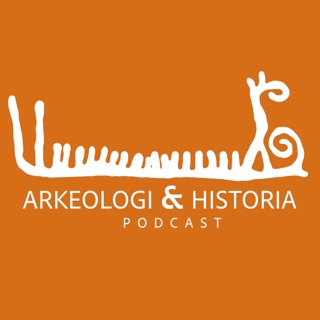
Matthew Archer, "Unsustainable: Measurement, Reporting, and the Limits of Corporate Sustainability" (NYU Press, 2024)
In recent years, companies have felt the pressure to be transparent about their environmental impact. Large documents containing summaries of yearly emissions rates, carbon output, and utilized resources are shared on companies’ social media pages, websites, and employee briefings in a bid for public confidence in corporate responsibility. And yet, Matthew Archer argues, these metrics are often just hollow symbols. Unsustainable: Measurement, Reporting, and the Limits of Corporate Sustainability (New York University Press, 2024) contends with the world of big banks and multinational corporations, where sustainability begins and ends with measuring and reporting. Drawing on five years of research among sustainability professionals in the US and Europe, Unsustainable shows how this depoliticizing tendency to frame sustainability as a technical issue enhances and obscures corporate power while doing little, if anything, to address the root causes of the climate crisis and issues of social inequality. Through this obsession with metrics and indicators, the adage that you can’t manage what you can’t measure transforms into a belief that once you’ve measured social and environmental impacts, the market will simply manage them for you. The book draws on diverse sources of evidence―ethnographic fieldwork among a wide array of sustainability professionals, interviews with private bankers, and apocalyptic science fiction―and features analyses of name-brand companies including Volkswagen, Unilever, and Nestlé. Making the case for the limits of measuring and reporting, Archer seeks to mobilize alternative approaches. Through an intersectional lens incorporating Black and Indigenous theories of knowledge, power and value, he offers a vision of sustainability that aims to be more effective and more socially and ecologically just. Robin Steiner is an economic anthropologist based in Miami, FL. His published work explores economic development, labor, and citizenship in Oman and the Arab Gulf. He teaches in the Department of Global and Sociocultural Studies at Florida International University. Robin can be reached at rsteiner@fiu.edu. Learn more about your ad choices. Visit megaphone.fm/adchoices Support our show by becoming a premium member! https://newbooksnetwork.supportingcast.fm/critical-theory
16 Aug 202440min

Anthony Abraham Jack, "Class Dismissed: When Colleges Ignore Inequality and Students Pay the Price" (Princeton UP, 2024)
Elite colleges are boasting unprecedented numbers with respect to diversity, with some schools admitting their first majority-minority classes. But when the twin pandemics of COVID-19 and racial unrest gripped the world, schools scrambled to figure out what to do with the diversity they so fervently recruited. And disadvantaged students suffered. Class Dismissed: When Colleges Ignore Inequality and Students Pay the Price (Princeton UP, 2024) exposes how woefully unprepared colleges were to support these students and shares their stories of how they were left to weather the storm alone and unprotected. Drawing on the firsthand experiences of students from all walks of life at elite colleges, Anthony Abraham Jack reveals the hidden and unequal worlds students navigated before and during the pandemic closures and upon their return to campus. He shows how COVID-19 exacerbated the very inequalities that universities ignored or failed to address long before campus closures. Jack examines how students dealt with the disruptions caused by the pandemic, how they navigated social unrest, and how they grappled with problems of race both on campus and off. A provocative and much-needed book, Class Dismissed paints an intimate and unflinchingly candid portrait of the challenges of undergraduate life for disadvantaged students even in elite schools that invest millions to diversify their student body. Moreover, Jack offers guidance on how to make students' path to graduation less treacherous--guidance colleges would be wise to follow. Learn more about your ad choices. Visit megaphone.fm/adchoices Support our show by becoming a premium member! https://newbooksnetwork.supportingcast.fm/critical-theory
15 Aug 202432min

Decoloniality
This episode is the third one this series where we look back over the first principles of the ReOrient project. In previous episodes we have discussed post-orientalism and post-positivism, here we turn to decoloniality. Discussions of decoloniality have become increasingly mainstream since the ‘Decolonise the Curriculum’ and ‘Rhodes Must Fall’ movements, and calls to decolonise are often heard on pro-Palestine marches around the world. But what is the relationship between the decolonial and the Islamicate? And how do we ensure that as it is mainstreamed, decolonial thought does not lose its meaning? To find out, let’s listen in. Learn more about your ad choices. Visit megaphone.fm/adchoices Support our show by becoming a premium member! https://newbooksnetwork.supportingcast.fm/critical-theory
15 Aug 202439min

Policing and White Power with Daniel Kryder and David Cunningham (JP, EF)
This June 2020 episode, originally part of a Global Policing series, was Recall this Book's first exploration of police brutality, systemic and personal racism and Black Lives Matter. Elizabeth and John were lucky to be joined by Daniel Kryder and David Cunningham, two scholars who have worked on these questions for decades. Many of the mechanisms that create an oppressed and subordinated American community of color can seem subtle and indirect, despite the insidious ways they pervade housing law (The Color of Law), education (Why Are All the Black Kids Sitting Together, Savage Inequalities) and the carceral state (The Condemnation of Blackness, The New Jim Crow, Locking Up Our Own). Although there is plenty of subtle racism in policing as well, there can be a brutally frontal quality to white-power policing: just look at the racial disparity in the stubbornly astronomically number of fatal shootings by police. David and Daniel ask how much of the current system of racial and class disparity can be traced back to slavery or to subsequent 19th century racial logic, and howw much arises from the confluence of other forces. The conversation notes the widespread white participation in 2020 protests–did we ever expect to hear Mitt Romney chanting “Black Lives Matter”?– and what this might suggest about the possibilities for actual change. It also touches on the roles of the media and institutions such as police unions and the erosion of federal oversight of local police departments. Mentioned in this episode: Klansville, USA (cf. the PBS show of the same name that drew heavily on the book; and an interview David did on the topic of today’s Klan) Kerner Commission Report (1968) Ethical Society of Police (cf. this compelling local post-Ferguson PBS documentary that speaks with St. Louis African-American police officers) Recallable Books Walter Johnson, “The Broken Heart of America” (2020) James Baldwin, “The Fire Next Time” (1963) Ta-Nehisi Coates, “Between the World and Me” (2015) Listen and Read Here: Learn more about your ad choices. Visit megaphone.fm/adchoices Support our show by becoming a premium member! https://newbooksnetwork.supportingcast.fm/critical-theory
15 Aug 202437min

Tehila Sasson, "The Solidarity Economy: Nonprofits and the Making of Neoliberalism after Empire" (Princeton UP, 2024)
After India gained independence in 1947, Britain reinvented its role in the global economy through nongovernmental aid organisations. Utilising existing imperial networks and colonial bureaucracy, the nonprofit sector sought an ethical capitalism, one that would equalise relationships between British consumers and Third World producers as the age of empire was ending. The Solidarity Economy: Nonprofits and the Making of Neoliberalism after Empire (Princeton University Press, 2024) by Dr. Tehila Sasson examines the role of nonstate actors in the major transformations of the world economy in the postwar era, showing how British NGOs charted a path to neoliberalism in their pursuit of ethical markets. Between the 1950s and 1990s, nonprofits sought to establish an alternative to Keynesianism through their welfare and development programs. Encouraging the fair trade of commodities and goods through microfinance, consumer boycotts, and corporate social responsibility, these programs emphasised decentralisation, privatisation, and entrepreneurship. Tehila Sasson tells the stories of the activists, economists, politicians, and businessmen who reimagined the marketplace as a workshop for global reform. She reveals how their ideas, though commonly associated with conservative neoliberal policies, were part of a nonprofit-driven endeavour by the liberal left to envision markets as autonomous and humanising spaces, facilitating ethical relationships beyond the impersonal realm of the state. Drawing on dozens of newly available repositories from nongovernmental, international, national, and business archives, The Solidarity Economy reconstructs the political economy of these markets—from handicrafts and sugar to tea and coffee—shedding critical light on the post imperial origins of neoliberalism. This interview was conducted by Dr. Miranda Melcher whose new book focuses on post-conflict military integration, understanding treaty negotiation and implementation in civil war contexts, with qualitative analysis of the Angolan and Mozambican civil wars. Learn more about your ad choices. Visit megaphone.fm/adchoices Support our show by becoming a premium member! https://newbooksnetwork.supportingcast.fm/critical-theory
14 Aug 202454min

Miguel Montalva Barba, "White Supremacy and Racism in Progressive America: Race, Place, and Space" (Policy Press, 2024)
White Supremacy and Racism in Progressive America: Race, Place, and Space (Policy Press, 2024) examines the connections between race, place, and space, and sheds light on how they contribute and maintain racial hierarchies. Dr. Miguel Montalva Barba focuses on the White residents of Jamaica Plain, Massachusetts, which, according to the Cooks Political Report Partisan Voting Index, is the most liberal district in the state and 15th in the United States of America. The book uses settler colonialism and critical race theory to explore how self-identified progressive White residents perceive their gentrifying neighborhood and how they make sense of their positionality. Using the extended case method, as well as in-depth interviews, participant observation, content analysis and visual/media analysis, the author reveals how systemic racialized inequality persists even in a politically progressive borough. This interview was conducted by Dr. Miranda Melcher whose new book focuses on post-conflict military integration, understanding treaty negotiation and implementation in civil war contexts, with qualitative analysis of the Angolan and Mozambican civil wars. Learn more about your ad choices. Visit megaphone.fm/adchoices Support our show by becoming a premium member! https://newbooksnetwork.supportingcast.fm/critical-theory
14 Aug 202451min

Craig Gent, "Cyberboss: The Rise of Algorithmic Management and the New Struggle for Control at Work" (Verso, 2024)
Across the world, algorithms are changing the nature of work. Nowhere is this clearer than in the logistics and distribution sectors, where workers are instructed, tracked and monitored by increasingly dystopian management technologies. In Cyberboss: The Rise of Algorithmic Management and the New Struggle for Control at Work (Verso, 2024), Craig Gent takes us into workplaces where algorithms rule to excavate the politics behind the newest form of managerial power. Combining worker testimony and original research on companies such as Amazon, Uber, and Deliveroo, the cutting edge of algorithmic management technology, this book reveals the sometimes unexpected effects these new techniques have on work, workers and managers. Gent advances an alternative politics of resistance in the face of digital control. Louisa Hann attained a PhD in English and American studies from the University of Manchester in 2021, specialising in the political economy of HIV/AIDS theatres. Learn more about your ad choices. Visit megaphone.fm/adchoices Support our show by becoming a premium member! https://newbooksnetwork.supportingcast.fm/critical-theory
13 Aug 202454min

Soar and Chill
Why do certain musical sounds move us while others leave us cold? Are musical trends simply that—or do they contain insights into the culture at large? Our guest is a musicologist who studies pop and electronic dance music. She’s fascinated by the way EDM privileges timbral and rhythmic complexity over the chord changes and harmonic complexities of the blues-based rock and pop music of yore. However, Robin James is also a philosopher and she connects these musical structures to social and economic structures, not to mention structural racism and sexism. In this episode, cris and Mack have a lengthy, freeform interview and listening session with Robin in which she breaks down the sounds of EDM, pop, hip hop, “chill” playlists, and industrial techno, conceiving them as varied responses to neoliberalism’s intensification of capitalism. Her analysis includes lyrical content, but her main focus is the soars, stutters, breaks, and drops that mimic the socio-economic environment of the 21st century. It’s an environment that demands resilience from all of us—and especially from women and people of color. Robin James’s books include: · Resilience & Melancholy: pop music, feminism, neoliberalism (Zer0 Books, 2015). · The Sonic Episteme: acoustic resonance & biopolitics (Duke, 2019). · The Conjectural Body: Gender, Race, & the Philosophy of Music (Lexington Books, 2010). Learn more about your ad choices. Visit megaphone.fm/adchoices Support our show by becoming a premium member! https://newbooksnetwork.supportingcast.fm/critical-theory
12 Aug 20241h 4min




















